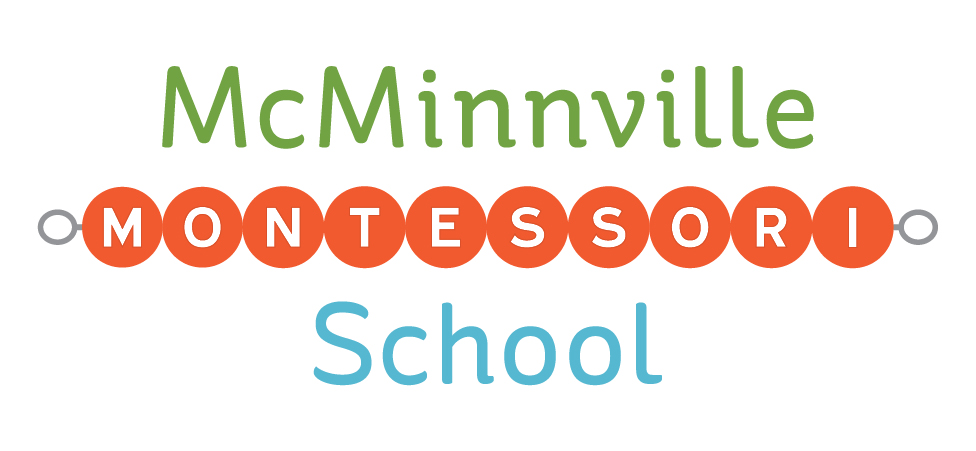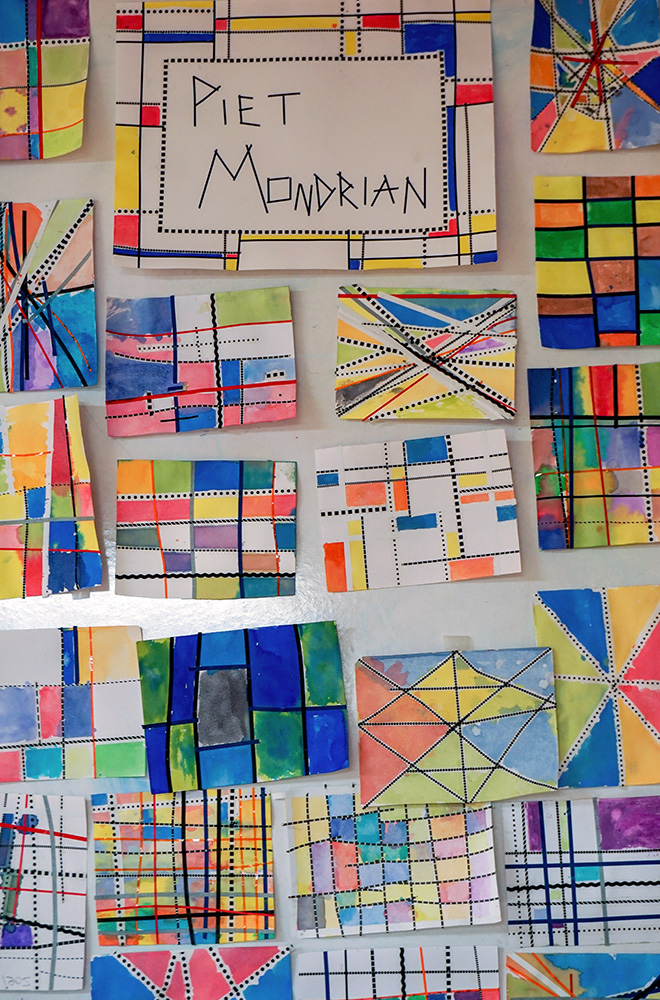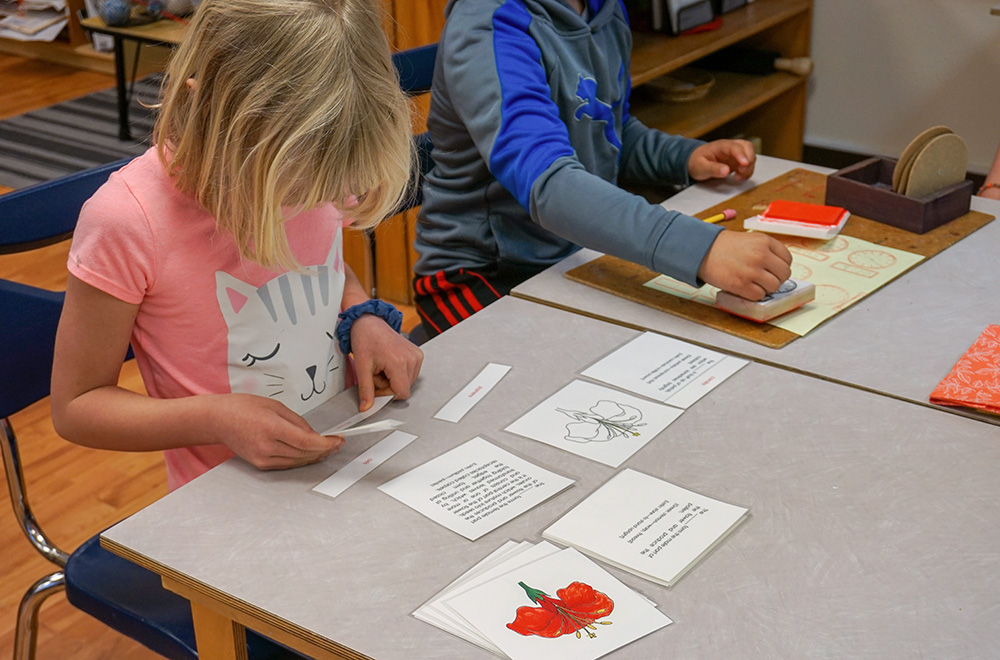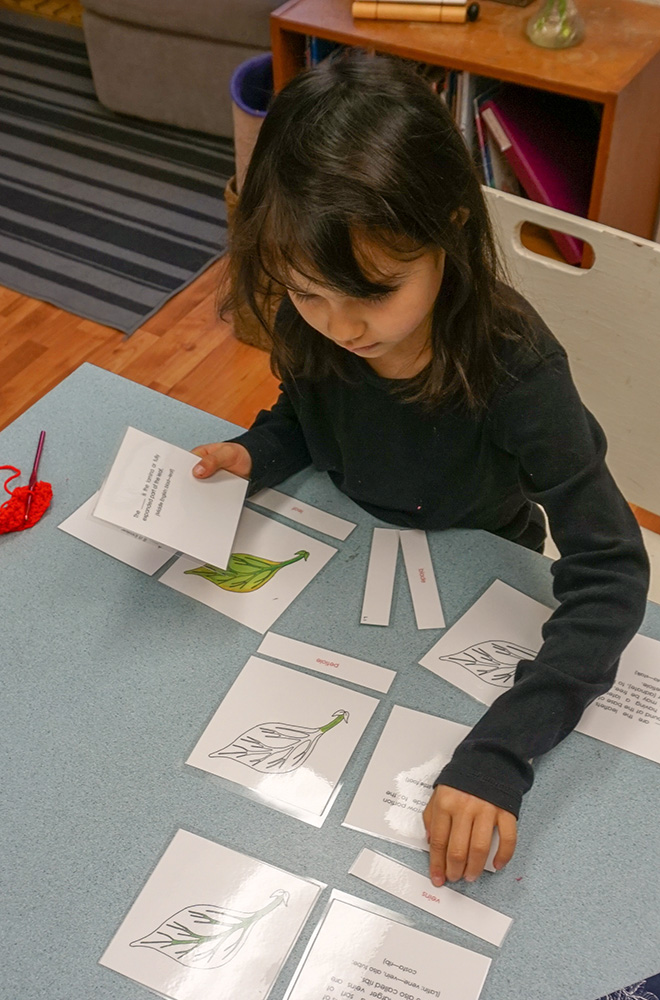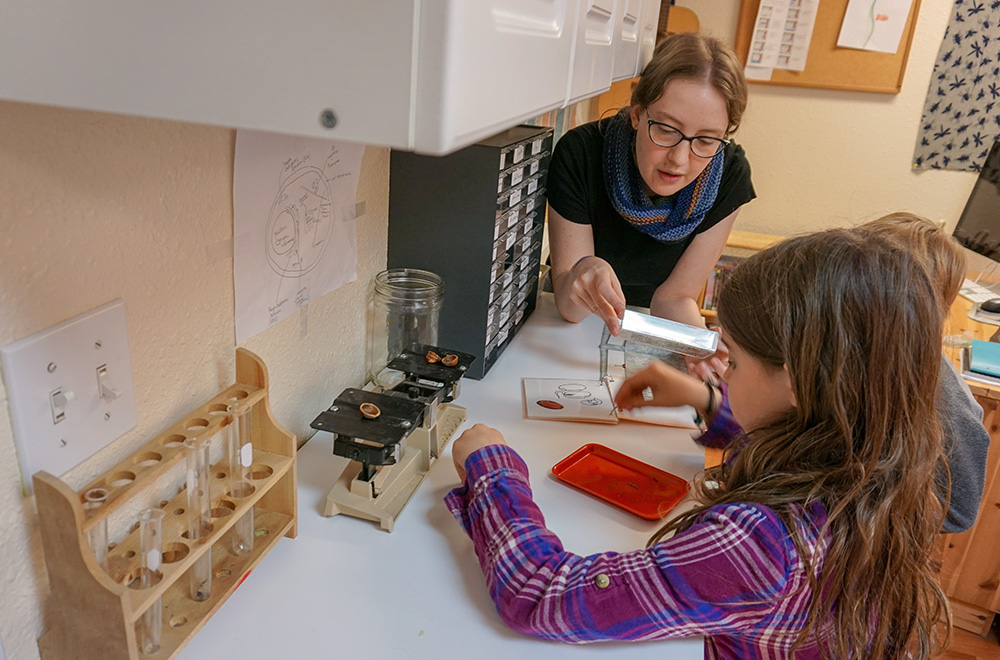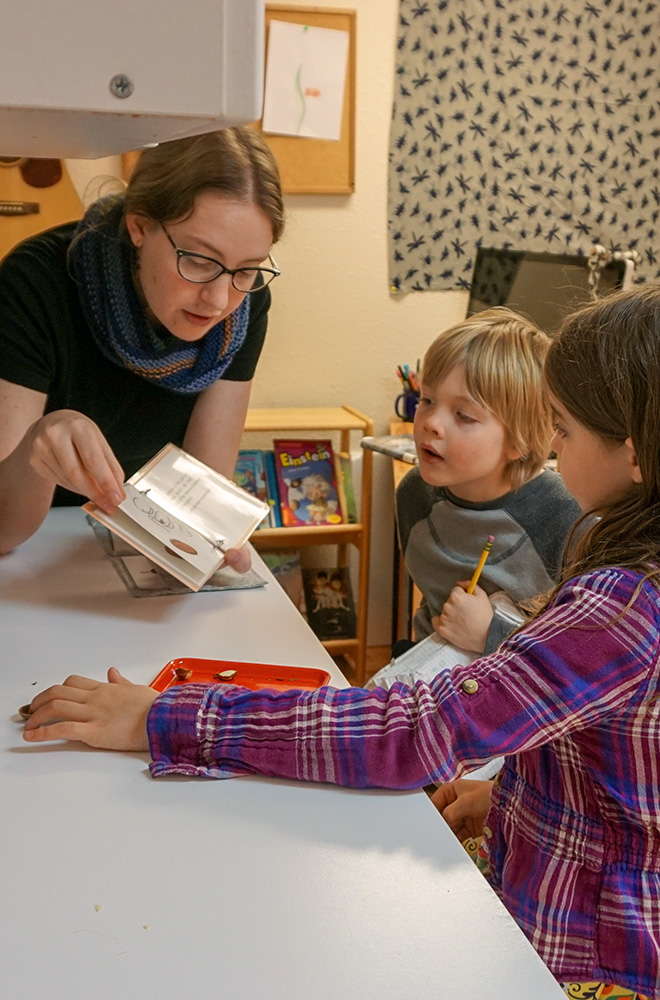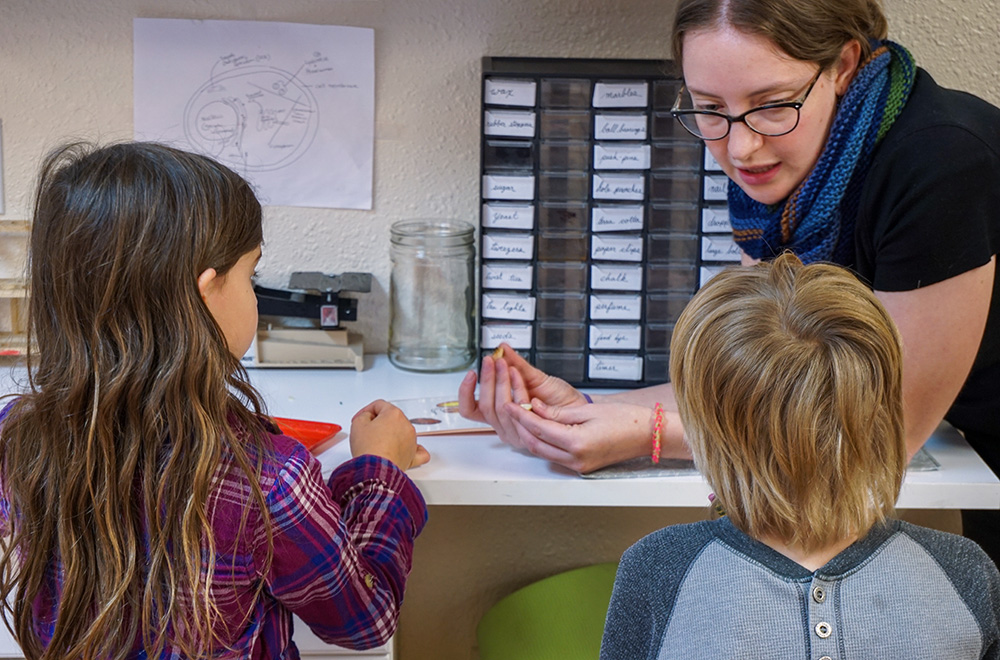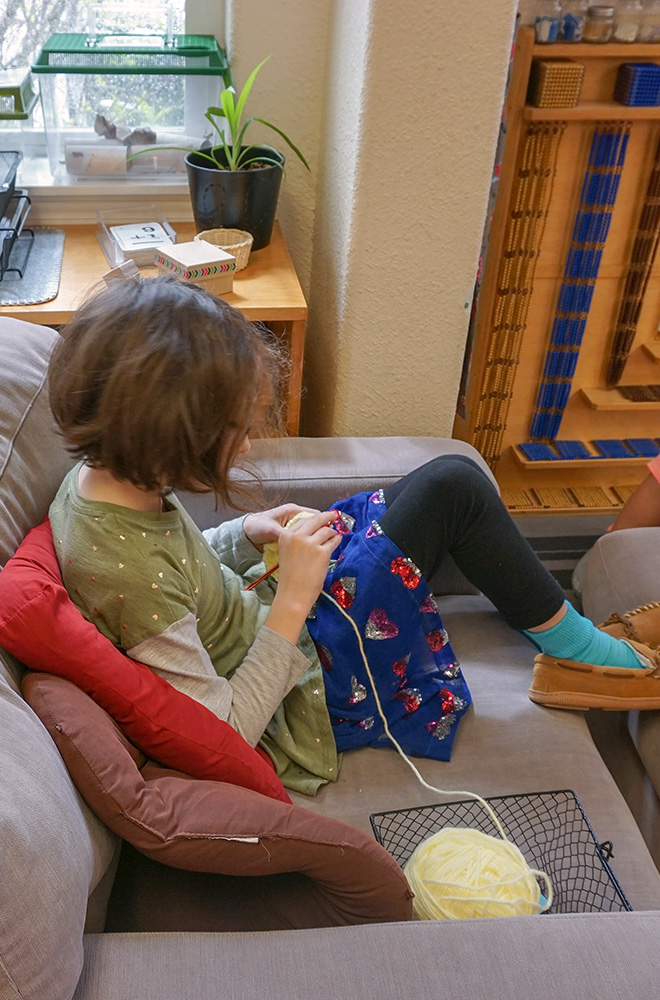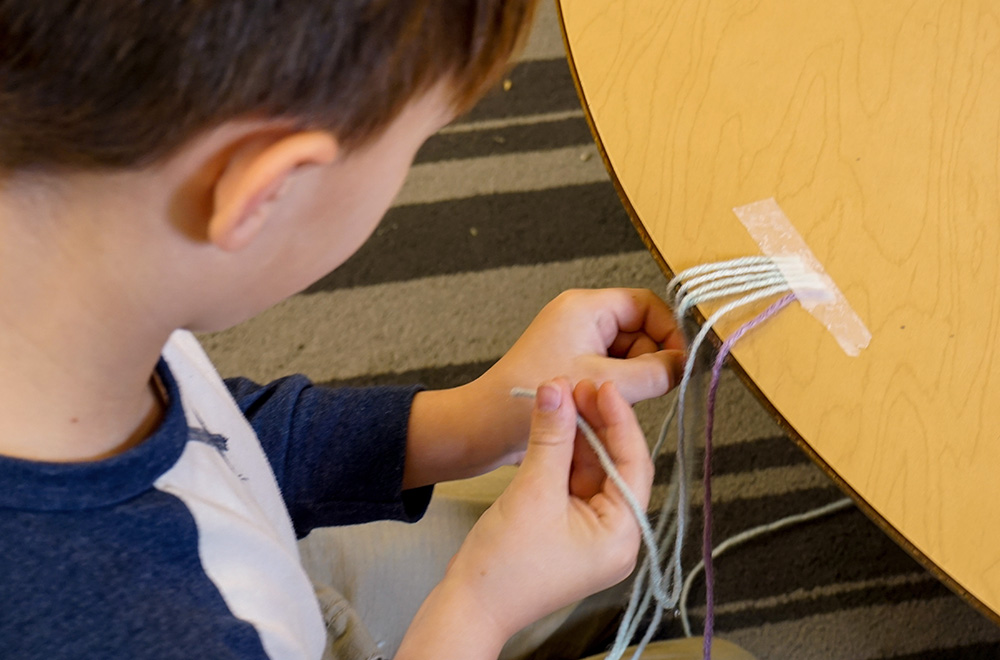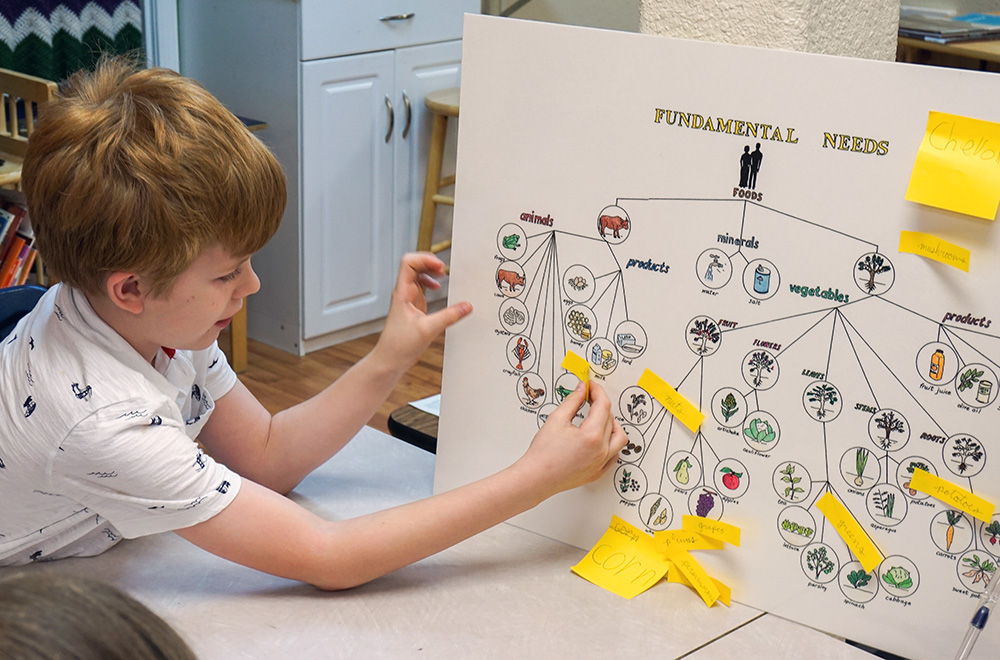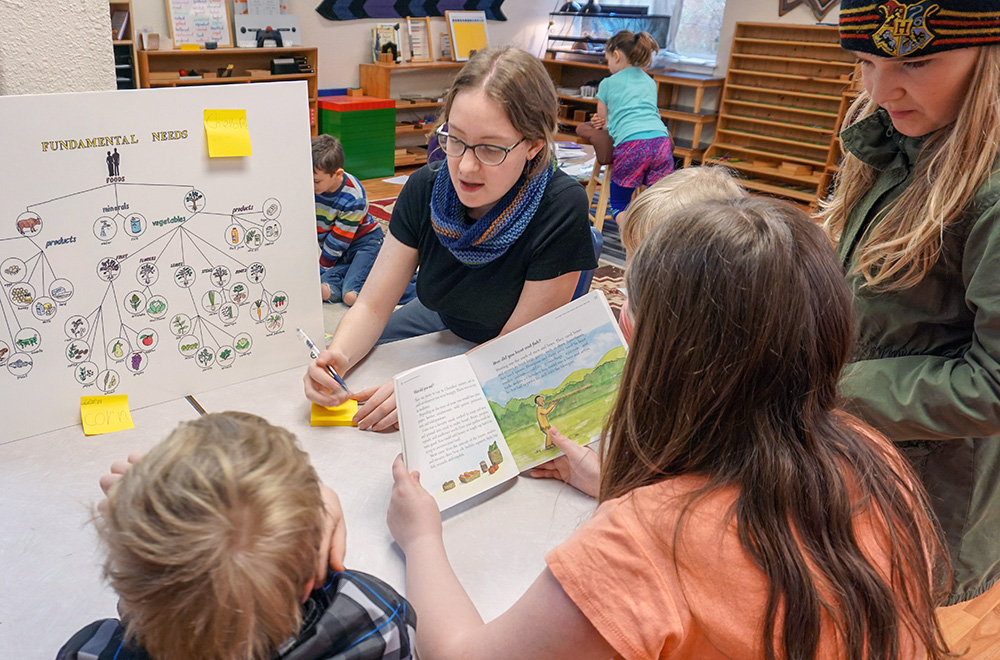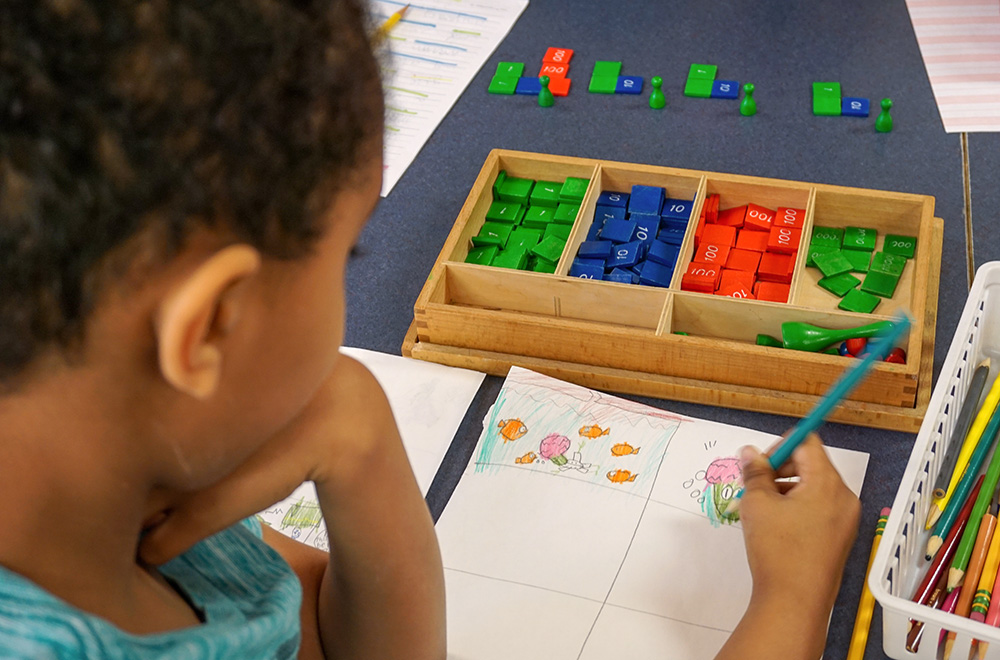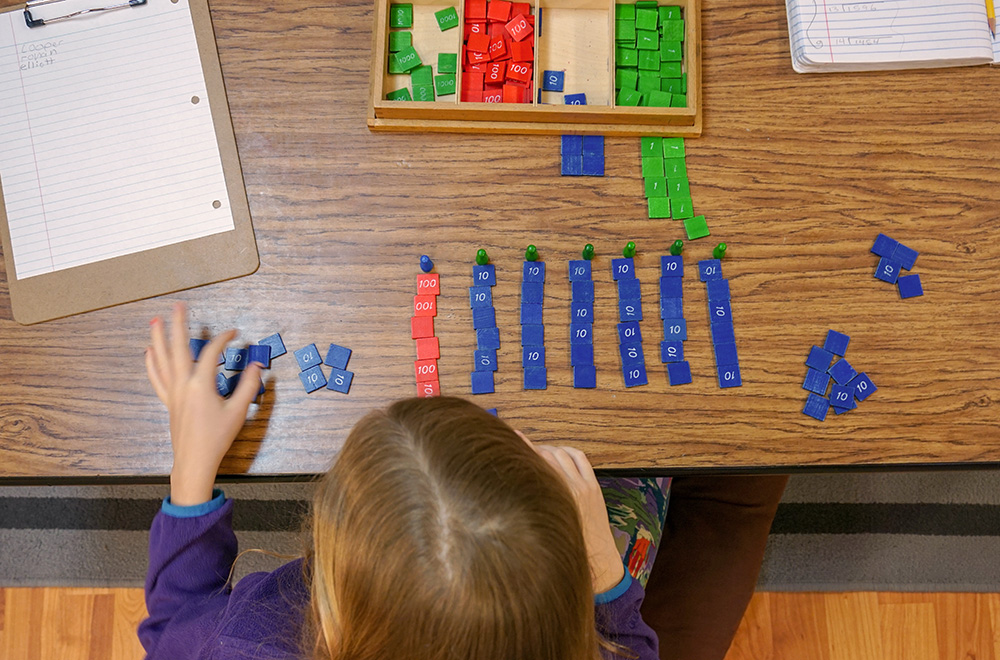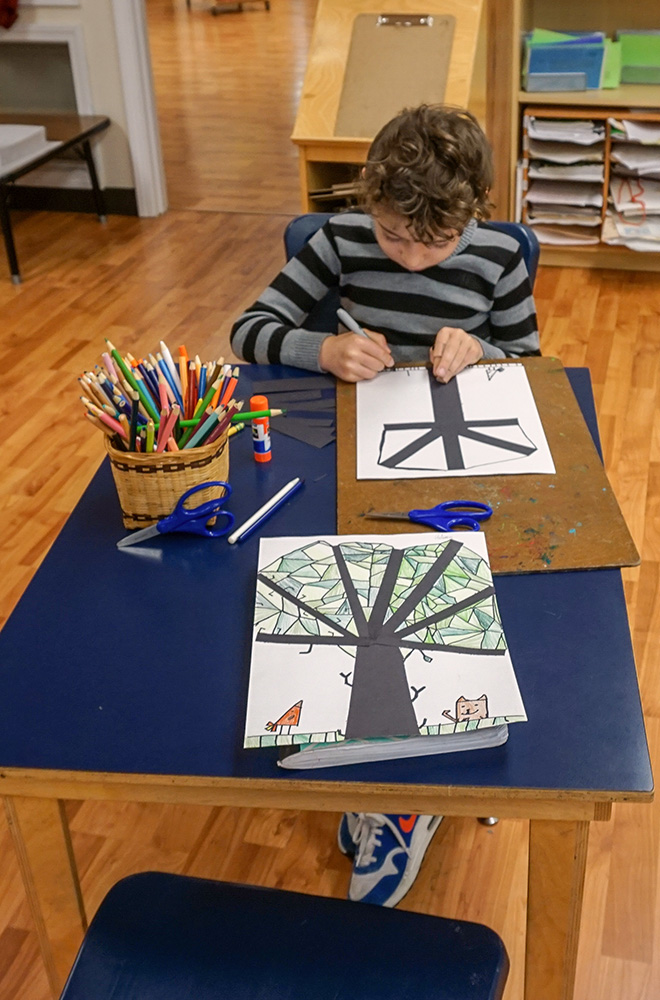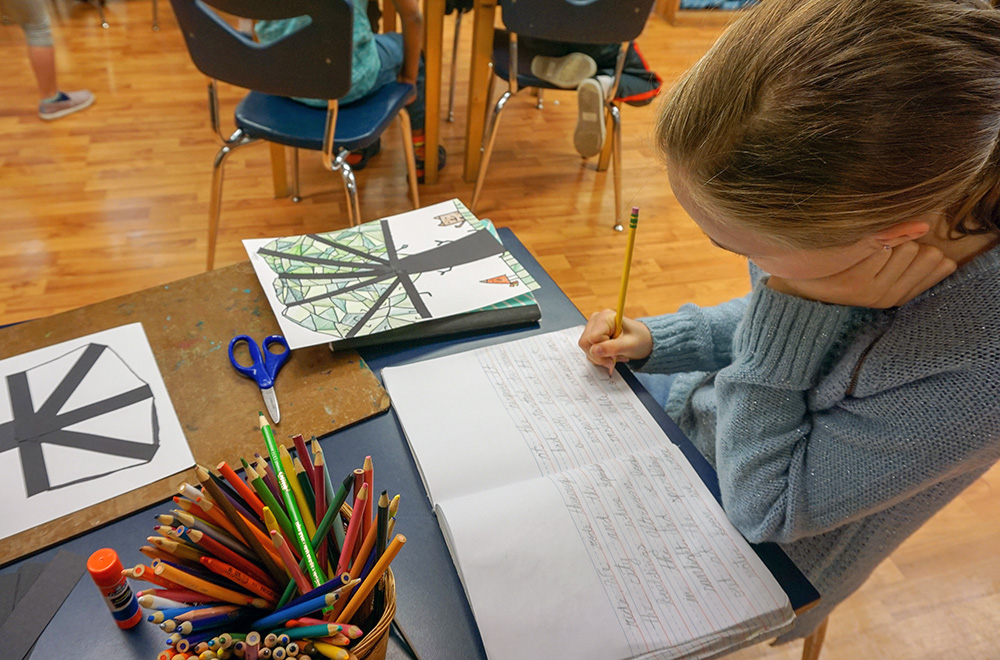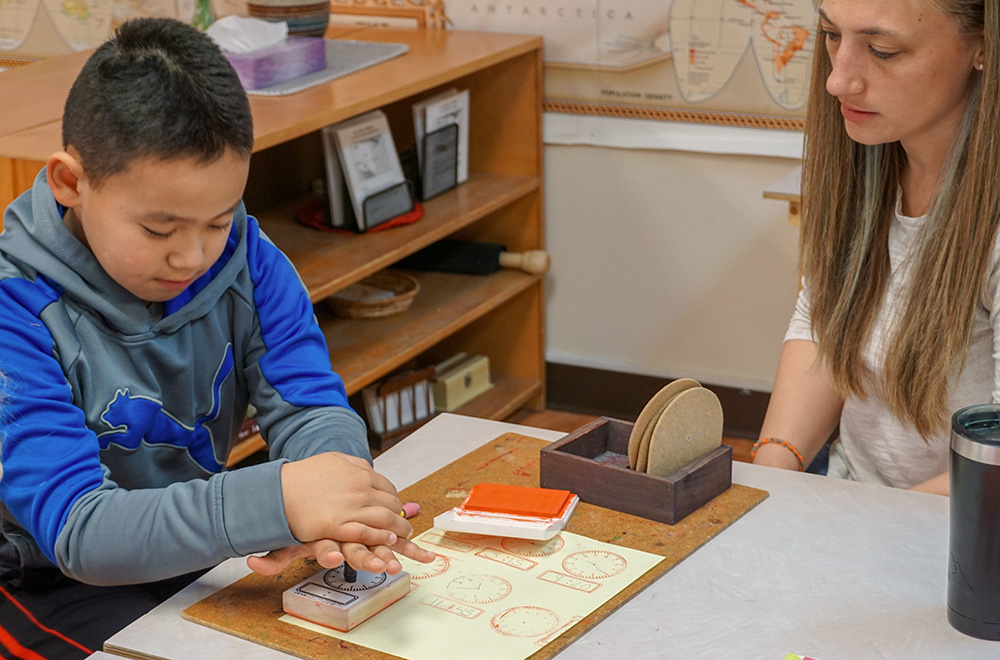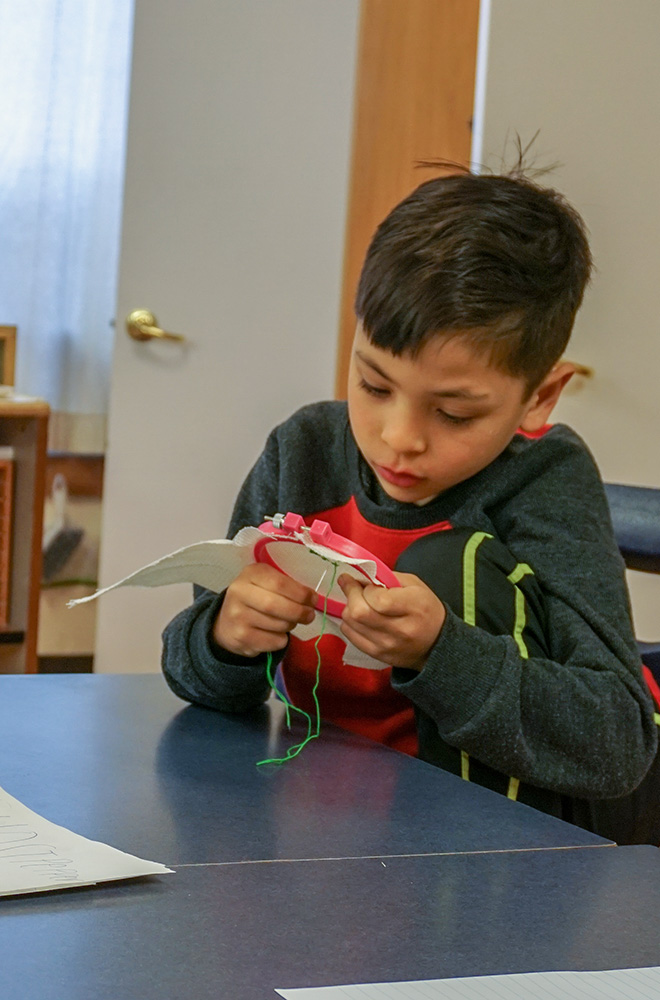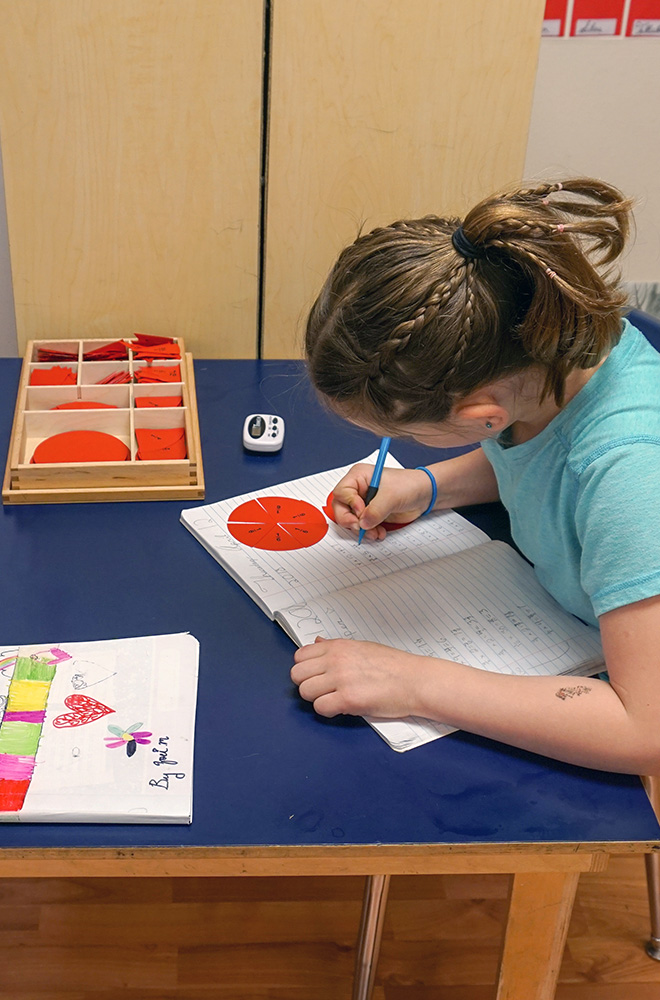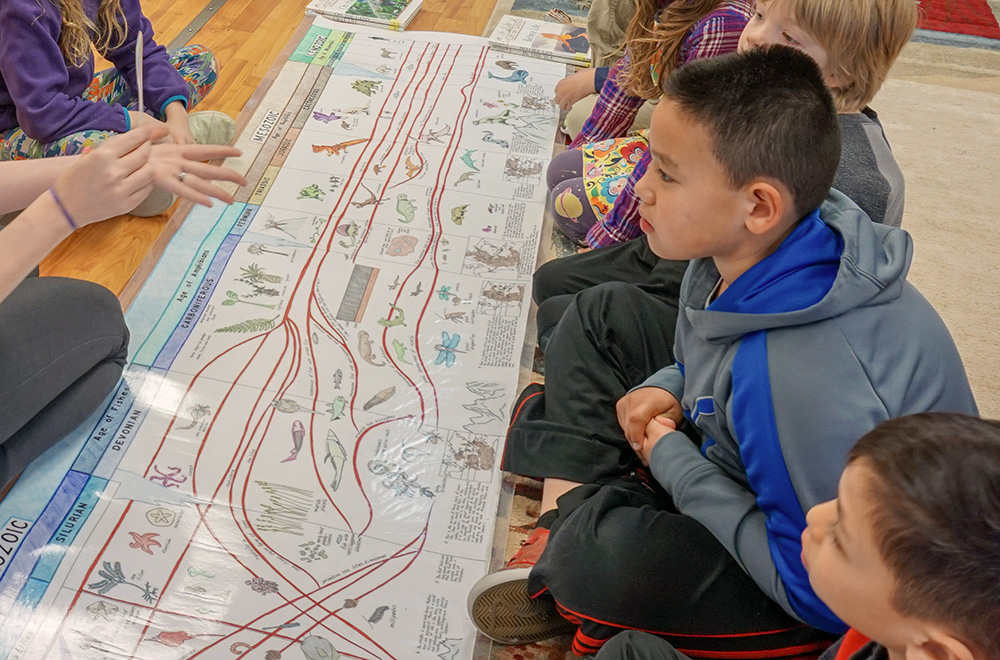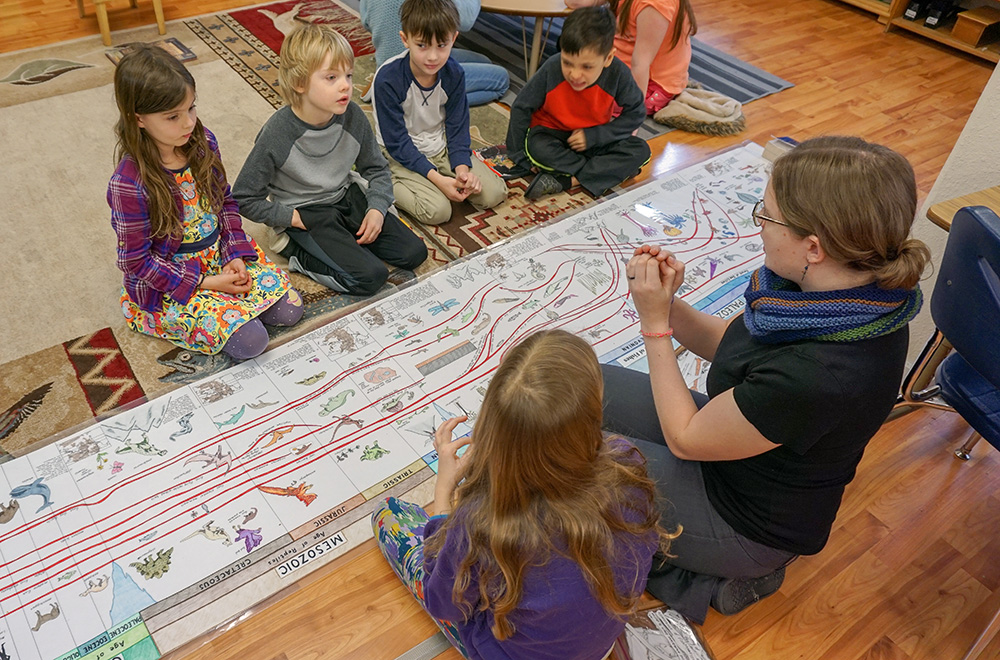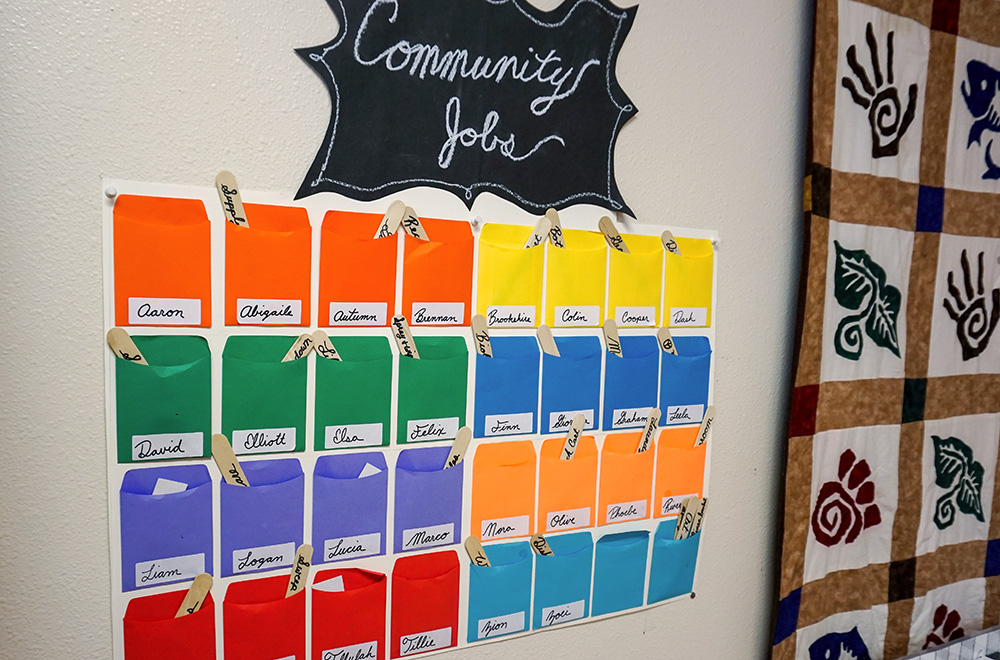Elementary: ages 6 – 12 years
Lower (grades 1-3) and Upper (grades 4-6)
Children 6 – 12 years of age are characterized by a thirst for knowledge, powerful imagination, fascination with fairness, and a desire for intellectual independence. The elementary child grows intellectually, emotionally and socially. Our classrooms are designed to enhance collaborative learning and continue to challenge individuals with a breadth of dynamic material.
A Learning Community
Students continue in multi-age classrooms with 6-12 year olds in the Elementary. As students progress through each 3 year cycle, they gain more responsibility and take on new leadership roles. Elementary classrooms are lively and use the children’s innate yearning to be social to great advantage. Class meetings are regularly held to address community issues and support the development of public speaking skills, leadership, and compromise.
An Environment Built for Learning
The Elementary classroom maintains the same organizational logic found in the Children’s House. In designated curricular areas you will find language arts, mathematics, geometry, cultural studies, science and art materials readily accessible throughout the classroom. Our rooms are thoughtfully designed to support intellectual curiosity, independence and collaborative work.
Our Curriculum
The Montessori Elementary curriculum is designed as a bridge to abstract ideas. It encourages students to see and explore connections between concepts they are actively learning. This is the time for “Cosmic Education,” in which the child explores their place within the world and comes to appreciate the interconnectedness of all things. By seeing the whole, children are better able to understand interdependence and their roles and responsibilities on micro- and macro-levels.
Elementary students are presented with the Five Great Lessons, connected stories that span enormous historical frames of time and space. Each lesson is a jumping off point that leads to exploration across disciplines: science, mathematics, social studies, and language. Stories are told through drama and unfold with demonstrations and imagery. The goal is to raise more questions than answers. The stories become catalysts that ignite curiosity and enthusiasm for challenging intellectual topics. The result is a classroom of engaged students who are able to access abstract concepts through an independent lens.
Stories, lessons and materials vary in complexity and depth for Lower Elementary and Upper Elementary presentations. While all of these learning objectives meet national standards, most exceed national and Core Curriculum standards. The six-year program allows students to embrace complex concepts on their own terms and provides children with an uncommon depth of research. Students benefit from highly trained instructors and the independence and flexibility to work at their own level and beyond.
Elementary Curriculum
Art
Botany
Drama
Ecology
Earth Sciences
Geography
Geometry
History
Language
Math
Music
Physical Education
Physical Science
Social Studies
Zoology
